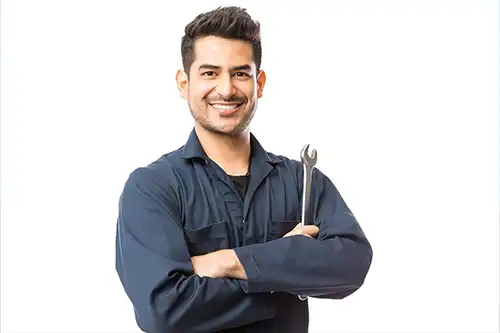 Homeowners can usually avoid the problems associated with pouring grease down the drain by simply throwing it away rather than flushing it down the pipes. However, businesses and multifamily complexes can’t always control the grease that goes into the plumbing system, which is where grease traps come in handy. The grease traps keep grease out of septic systems and sewers to help prevent backups and other problems. Here’s what you need to know about the importance of hiring regular grease trap cleaning services in Decatur, IL, and some dos and don’ts associated with cleaning grease traps.
Homeowners can usually avoid the problems associated with pouring grease down the drain by simply throwing it away rather than flushing it down the pipes. However, businesses and multifamily complexes can’t always control the grease that goes into the plumbing system, which is where grease traps come in handy. The grease traps keep grease out of septic systems and sewers to help prevent backups and other problems. Here’s what you need to know about the importance of hiring regular grease trap cleaning services in Decatur, IL, and some dos and don’ts associated with cleaning grease traps.
Do Trust Professionals
The most important aspect of grease trap maintenance is to entrust the installation and maintenance to professionals. Failing to leave the installation to professionals can cause numerous problems down the road. You’ll probably notice right away if a grease trap isn’t installed correctly because there will be little or no grease accumulation in the trap. Professional maintenance is also important because the technicians will be able to detect any potential problems when cleaning the grease trap. They’ll also know how to do the job in compliance with the law and make the whole process much easier for you. If proper procedures aren’t followed, you could be subject to fines and penalties, so it’s best to have it done correctly the first time.
Do Recognize Signs of Trouble
It’s also important to recognize when your grease trap needs to be cleaned or when there may be other problems. Bad odors are a common sign that your grease trap needs to be cleaned. These odors occur when bacteria eat the grease and oil in the trap, and the grease itself can give off an unpleasant smell as it sits for long periods of time. You’ll also notice slowing drains when the grease trap needs to be cleaned. The drains should run smoothly unless there’s an issue with the grease trap. Your bathrooms can be affected by dirty grease traps as well because all the plumbing in the building is affected. If you’re experiencing water pressure problems or issues with the toilets, it may be because you need to contact a grease trap cleaning service.
Don’t Use Harsh Chemicals for Cleaning
 A major mistake some people make is using harsh chemicals or cleaning solvents in an attempt to clean out grease traps. Using any enzymes or chemicals that are meant to break down fats and oils are usually not proven effective and may end up causing more damage or simply separate the grease from the water. This causes more grease to go into the wastewater system and form clogs. Many municipalities actually forbid the use of these products in public wastewater systems. If you use a septic system, you could cause further problems because these products often kill off bacteria that are necessary for keeping the right balance in your septic system in order for it to function properly.
A major mistake some people make is using harsh chemicals or cleaning solvents in an attempt to clean out grease traps. Using any enzymes or chemicals that are meant to break down fats and oils are usually not proven effective and may end up causing more damage or simply separate the grease from the water. This causes more grease to go into the wastewater system and form clogs. Many municipalities actually forbid the use of these products in public wastewater systems. If you use a septic system, you could cause further problems because these products often kill off bacteria that are necessary for keeping the right balance in your septic system in order for it to function properly.
Don’t Overlook Regular Cleanings
Finally, be sure not to overlook regular cleanings. Although it’s important to recognize the signs that you need to clean a full grease trap, it’s even better to not let it get to that point so that you can avoid unnecessary septic repair in Decatur, IL. Most grease traps need to be cleaned at least every three months; however, many require more frequent cleanings than that, every 30 to 60 days.
If you’re ready to schedule your grease trap cleaning, contact Sewer & Septic Specialist Inc. today by calling 217-855-5622.







